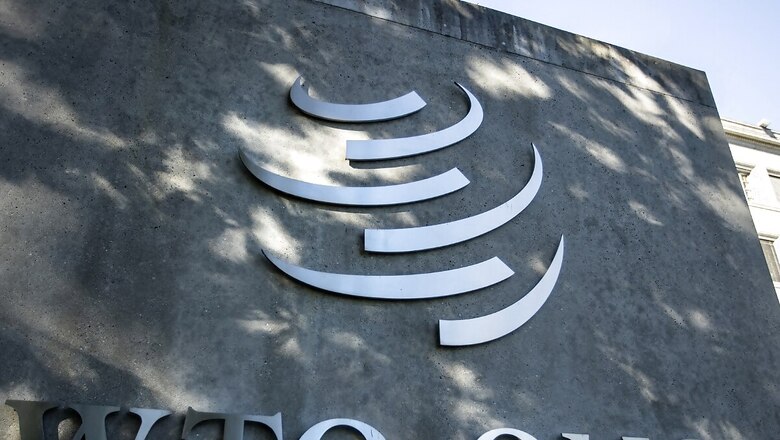
views
India is opposed to a proposal led by China on investment facilitation at the WTO, stating that it is a non-trade issue and falls outside the mandate of the global trade body, an official said on Tuesday.
A China-led group of over 120 countries are pushing for the Investment Facilitation for Development Agreement (IFD) proposal to become part of the World Trade Organisation (WTO). These nations want to figure the issue in the 13th ministerial conference (MC) here.
The four-day meet started here on February 26. “India believes that the WTO should deal with issues related to trade and this is a non-trade issue and India is against bringing this into the WTO framework,” the official said. The group wants to bring the proposal through annexure-4 of the WTO under which the proposal would be binding on only the signatory members and not on those who are opposed to it.
India’s concern
India’s concern emanates from the fact that proponents of IFD should not be attempting to bring a “non-mandated, non-multilateral issue” to the formal process in the WTO. Such an attempt will be in violation of the WTO framework and fundamental rule of consensus-based decision-making.
The official also said that the proposal is led by the vested interest of the group. While all decisions at the WTO happen through consensus, it also allows member countries to form a group and have agreements among themselves.
Such pacts come under Annexure 4 of the WTO that deals with plurilateral agreements. The IFD was first mooted in 2017 by China and other countries that depend heavily on Chinese investments, and countries with sovereign wealth funds are party to that pact.
On the e-commerce moratorium, the official said that India is against any further extension beyond March 31 this year. The ongoing moratorium on customs duties on electronic transmissions, in place since 1998, is a contentious issue facing the WTO and a key focus point for India at the upcoming MC13.
India, alongside several other developing nations, has historically called for the termination of the moratorium and has specific demands at MC13 to achieve this goal. Developed nations, however, are pushing for the permanent adoption of a duty-free flow of digital transmission.















Comments
0 comment